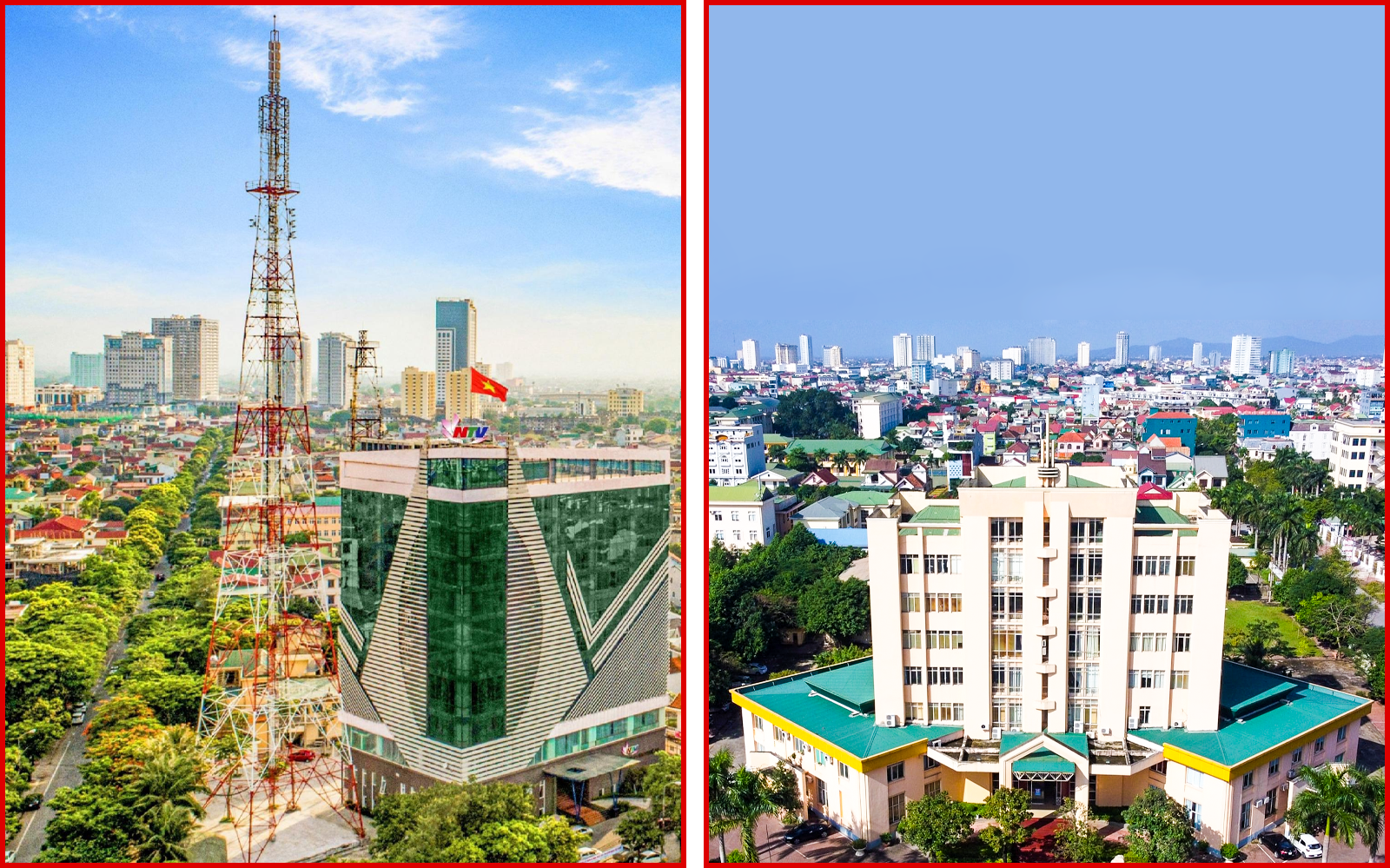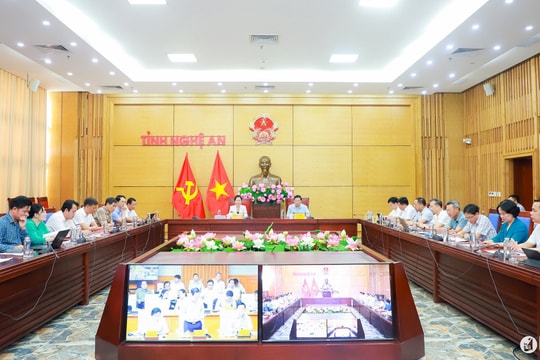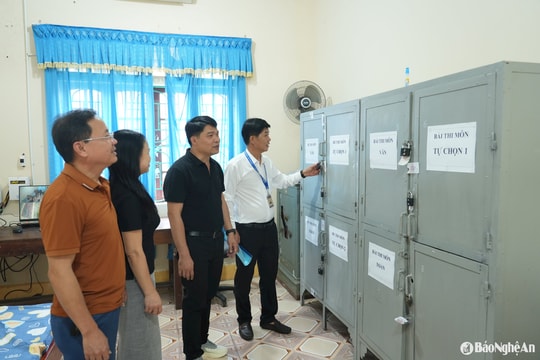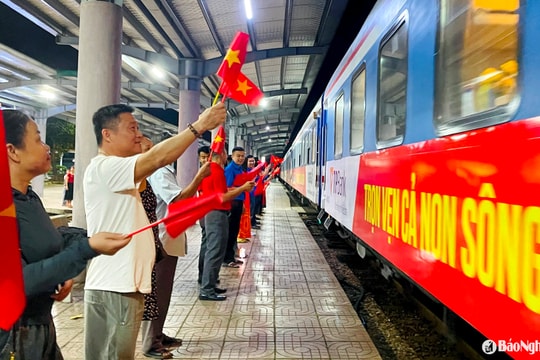Nghe An Newspaper and Radio-Television Merger: Strengthening power, expanding future
July 1, 2025, marked a milestone in the media landscape of Nghe An province. The merger between Nghe An Newspaper and Nghe An Radio and Television Station officially came into effect, forming a unified provincial media agency under the direct authority of the Nghe An Provincial Party Committee. This restructuring was part of a national policy push aligned with Conclusion No. 126-KL/TW of the Politburo on reorganising state-run press agencies across Vietnam.

This merger represents a synergy of strengths in organisational structure, professional capacity, technology, and strategic vision. Building on the legacy of the two long-established names in the local mediascape, the unification creates a leading, modern and professional journalism force worthy of the position of President Hồ Chí Minh’s homeland.
Merger doubles the power
A converged newsroom refers to a media organisation in which journalists from different platforms—print, broadcast, and online—collaborate within a unified space, sharing content, resources, and editorial strategies. This model promotes efficiency, multimedia storytelling, and cross-platform coherence. Nghe An Newspaper has implemented this model since 2015, long before it gained its first official policy recognition in 2018.
.jpg)
.jpg)
.jpg)
.jpg)
.jpg)
.jpg)
Following the 2025 merger between Nghe An Newspaper and the Nghe An Radio and Television Station, the newly unified agency, now operating under the name Nghe An Newspaper and Radio-Television, has become a fully converged newsroom in both form and function. While both agencies had independently adopted elements of convergence, the merger provides a unique opportunity to move beyond partial integration and toward a fully professional, standardised converged newsroom. This means more than just co-location or shared branding. It involves: Integrated editorial workflows, where journalists collaborate across platforms on shared story agendas, Centralised content management systems that streamline production and distribution in real time, Cross-trained staff capable of producing multimedia content—articles, videos, audio, data visualisations—tailored to platform-specific audiences, Data-driven decision-making, using audience insights and analytics to inform editorial priorities and optimise engagement, Strategic leadership that aligns technology, human resources, and content development under a cohesive vision.
The merger also allows for the elimination of redundancies in administration, infrastructure, and production workflows. More importantly, it creates the scale necessary for new investments in AI, digital automation, data journalism, and audience analytics, which smaller, independent units might not be able to afford alone.
With this transformation, Nghe An’s provincial media is no longer just catching up—it is poised to lead. The new, unified agency stands as a model for other provinces in Vietnam seeking to modernise their press systems under the framework of national digital transformation goals.
.jpg)
.jpg)
.jpg)
.jpg)
.jpg)
.jpg)
Merger serves society
Beyond internal restructuring, the true significance of this merger lies in its potential to serve the public more effectively. As a consolidated media entity, Nghe An Newspaper and Radio-Television is now positioned to deliver more comprehensive, timely, and accessible content across a full spectrum of platforms. In an era where information ecosystems are increasingly fragmented—distorted by misinformation and shaped by opaque algorithms—a strong, credible provincial voice grounded in public interest journalism is not merely valuable, but vital. This new agency can offer consistent, verifiable information to citizens across the province, whether in densely populated centres or hard-to-reach rural communities. From policy updates and public health guidance to cultural programming and emergency alerts, the public can expect a more coherent and responsive flow of information.
Crucially, the convergence of platforms and editorial teams enhances inclusivity. Content can now be tailored with greater precision, reaching different audience segments through the media channels they naturally gravitate toward—be it television, online news sites, social media, podcasts, or mobile apps. This multi-format approach helps bridge generational and geographic divides, ensuring that information is not only distributed more widely but delivered in a form that resonates with diverse audiences.
.jpg)
Moreover, the nature of audience engagement has changed. Today’s public is no longer satisfied with simply consuming content—they expect to interact with it, contribute to it, and in many cases, help shape it. The merged agency has the infrastructure and editorial flexibility to embrace this shift. Citizens can submit story leads, share photos and videos, participate in surveys or live streamed town halls, and increasingly become co-producers in the information ecosystem. This evolution towards participatory journalism not only strengthens trust but also helps ensure that the media reflects the lived realities and priorities of the communities it represents.
Tourism, too, stands to gain from this transformation. With enhanced capacity for multimedia storytelling and a unified communications strategy, Nghe An is better equipped to craft a compelling narrative about its identity, one that moves beyond promotional slogans to convey genuine cultural depth. Festivals, heritage sites, local cuisine, and landscapes can be showcased with greater consistency and creativity across platforms, elevating the province’s visibility and appeal to both domestic and international visitors. In an increasingly competitive tourism market, the ability to tell a coherent and engaging story matters—and the merged agency gives Nghe An a sharper voice with which to do so.
Ultimately, this merger is not just about media reform—it’s about strengthening the relationship between information and the public good. A more unified media agency means a more informed public, a more inclusive civic space, and a province better equipped to tell its own story, on its terms.



.jpg)

